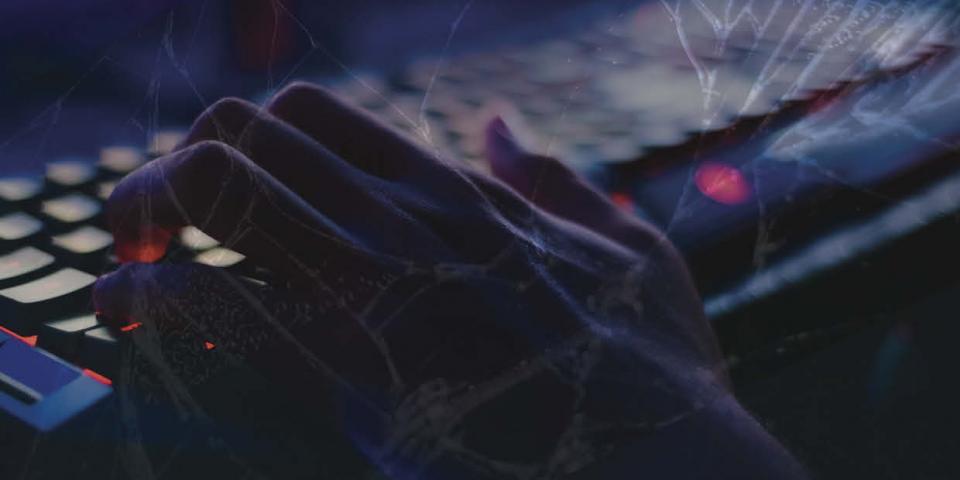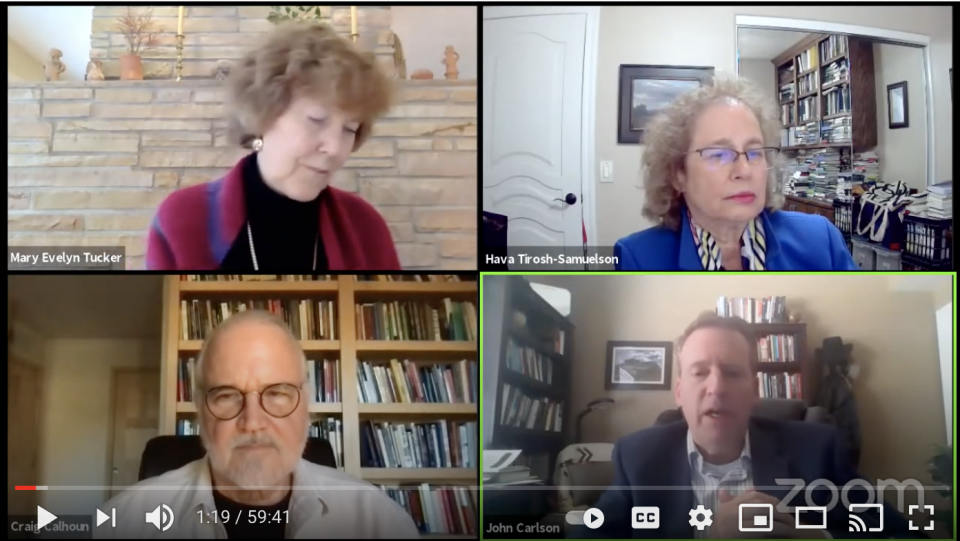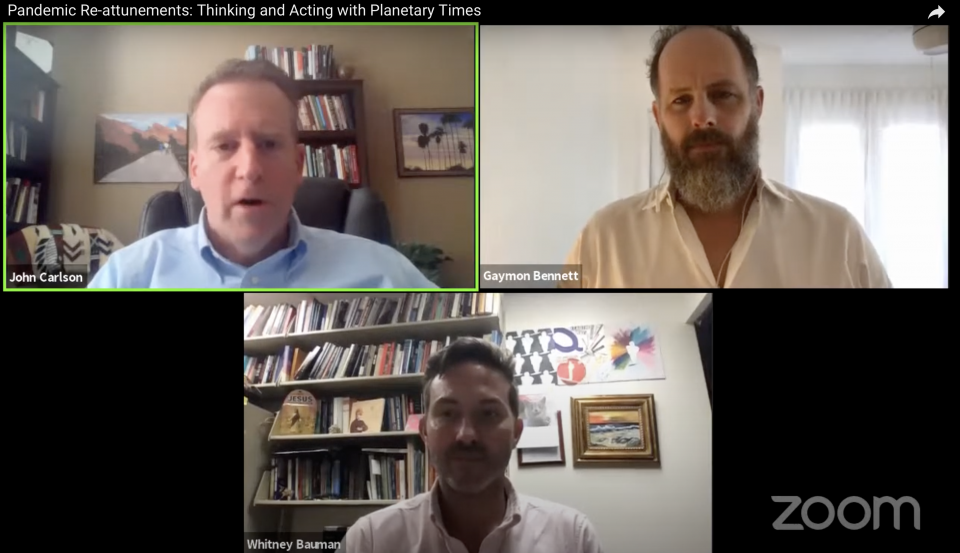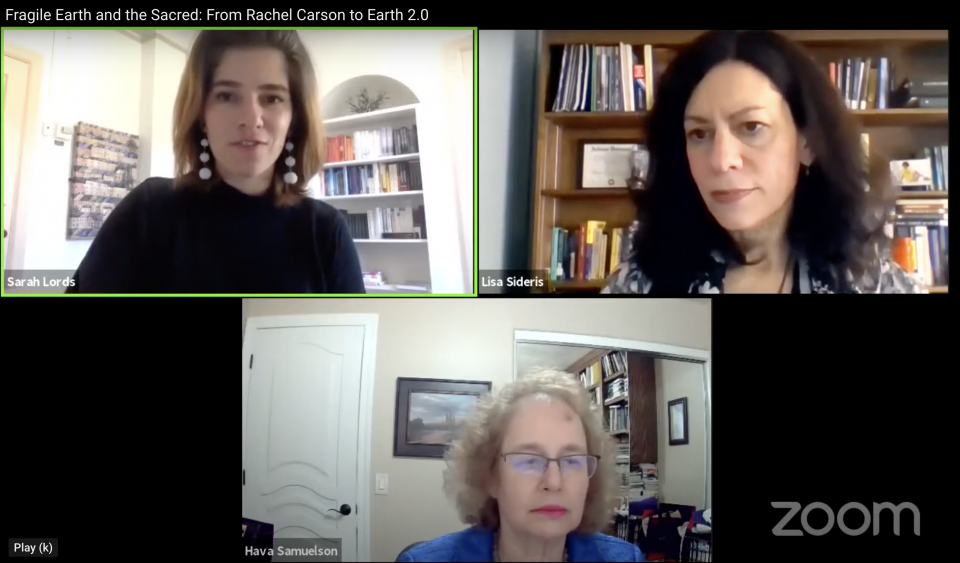
Beyond Secularization:
Religion, Science and Technology in Public Life
Laid Bare: Surveillance, Eugenics and Personhood
Tuesday, April 20, 2021 • 3:00 pm
Online, via Zoom / Click here to watch
Taking “comorbidities” as an entryway, this discussion will focus on surveillance, eugenics, and personhood to raise questions about biopower, which considers how people’s everyday lives are governed, and necropolitics, which examines how the state determines who may live and who must die.
Laid Bare: Vulnerabilities & Vitalities at the Nexus of Religion, Science and Technology is a series of conversations that will bring together unusual pairings of guests from the worlds of science and religion, technology and public life to discuss the simple—but consequential—things of life that maybe didn’t get our shared attention, or not to the same degree, until the virus laid them bare.
Host: Craig Calhoun, University Professor of Social Sciences at the School of Sustainability, College of Global Futures.
Guests:
- Sylvester Johnson, professor in the Department of Religion and Culture at Virginia Tech; founding director of the Virginia Tech Center for Humanities; vice provost for the humanities at Virginia Tech; and executive director of the university’s Tech for Humanity initiative,
- Charles McCrary, postdoctoral scholar atthe Center for the Study of Religion and Conflict at ASU.
Science, Religion, and Society: Lessons from the U.S. Case
Tuesday, April 6, 2021 • 1:00 pm
Online, via Zoom / Click here to watch
“Follow the science, not politics.” That simple injunction became a point of contestation in this past year’s bitter clashes over the pandemic and points to something scholarly interpreters have learned about science in recent decades: that it is, in Steven Shapin’s words, “never pure.”
Join us as Professor Andrew Jewett explores how social and cultural developments in the twentieth-century United States helped to cement the belief that science and politics are fundamentally opposed, along with the parallel view that science and religion are entirely separate and mutually exclusive. Building on his recent book Science under Fire: Challenges to Scientific Authority in Modern America (Harvard University Press, 2020), Jewett will offer a series of historically grounded reflections on how we might move beyond such entrenched dichotomies.
“Opening a Star Gate to the Dark Gods”: Psychic Espionage, Satanic “Cults,” & Occult Nazis on the Dark Web
Tuesday, March 23, 2021 • 11:00am
Online, via Zoom
Outside the panopticon of conventional policing, a subset of the deepweb known as “the dark web” contains markets for illegal drugs, hacking groups selling their services, and underground networks of terrorists, assassins, and pornographers. Alongside these better-known dangers, it also hosts spell books and occult secret societies.
Departing from a particular darkweb occult library, this talk will unravel a tangled skein that connects a 1947-48 Chilean expedition to establish an air base in Antarctica to the US military’s “Star Gate” remote viewing project to a far-right explicitly “satanic” Neo-Nazi secret society. Along the way we will encounter people who believe in: telepathy; psychokinesis; virtual voodoo; dark enlightenment; the reality of Satan; the recovered magical traditions of an isolated coven of witches in the Welsh Marches; and much, much more. Taken together, this talk aims to shed light on white supremacy, contemporary antisemitism, the myth of disenchantment, the Cold War psychic military industrial complex, “porous selves,” and the dark underbelly of the “post-secular.”

Laid Bare: Sacred Earth
Wednesday, January 27, 2021 • 2:30 pm
Online, via Zoom / Click here to watch
The novel coronavirus continues to proliferate, causing much suffering and devastation, and other natural phenomena, including droughts, floods, storms and fires continue to set records, altering lives and landscapes. As necessary precautions have disrupted the rhythms of daily life and social support systems, they have also significantly benefited the natural world. This juxtaposition of environmental flourishing and human suffering raises questions about humanity’s relations with the natural world.
Host: Craig Calhoun, University Professor of Social Sciences at the School of Sustainability, College of Global Futures
Guests:
- Mary Evelyn Tucker, the co-director of the Yale Forum on Religion and Ecology at Yale University,
- Hava Tirosh-Samuelson, Irving and Miriam Lowe Professor of Modern Judaism and director of the Center for Jewish Studies
Pandemic Re-Attunement:Thinking with and Acting with Planetary Times
Tuesday, October 27, 2020 • 11:00am
Online, via YouTube Live / Click here to watch
Join us for a discussion with Whitney Bauman on the intersection of religion, science, and ecology as he examines how ideas of progress govern orientations toward time, which, in turn, shape human relationships with the natural world.
The twin and related phenomena of globalization and climate change have been exacerbated since the beginning of the so- called “great acceleration” following WWII. The acceleration of transportation, communication, and production technologies helped to create what Bauman calls “fossil-fueled realities,” which are literally outstripping the carrying capacity of the planet —all in the name of progress. This talk explores how “pandemic times” have shown a light onto the problems of fossil-fueled realities and considers possibilities for post-pandemic moral sensibilities. From environmental degradation, climate change, and mass extinction to issues of sexism, racism, and ethnocentrism, humans and other earth bodies can no longer bear the weight of the “slow violence” of fossil-fueled realities. The times of trees and rivers, rocks and bees as well as the times of human bodies cannot be forced into fossil-fueled time without huge costs. Might we be able to re-attune our thought and actions away from the speed of fossil-fueled time and toward an understanding of planetary times (multiple, bubbling, and open), planetary bodies (entangled and porous), and planetary knowing (decolonial, critical and multiple)?
Fragile Earth and the Sacred: From Rachel Carson to Earth 2.0
Tuesday, October 6, 2020 • 1:00pm
Online, via YouTube Live • Click here to watch
Lisa Sideris speaks on environmental ethical issues at the intersection of religion and culture, with particular attention to the interplay between religious and scientific worldviews.
Sideris' research examines the conflict and compatibility between Darwinian perspectives on nature and natural processes, and religious-ethical claims about the natural world and its value.
More recently, her work has focused on science-based forms of environmental spirituality and the role of wonder in discourse about nature and the scientific enterprise, including the life and legacy of environmental pioneer, Rachel Carson.
Laid Bare: Contagion & Community
Thursday, June, 11 2020 • 4:00pm
Online, via YouTube Live / Click here to watch
The coronavirus pandemic is a crisis unlike any in recent memory. Yet even in this unprecedented time, COVID-19 has contributed to a somewhat ironic outcome: it has laid bare cares, concerns, and contradictions that have long been present, re-establishing and re-framing everyday experiences and vulnerabilities intensified by the severity of our situation.
Laid Bare: Vulnerabilities & Vitalities at the Nexus of Religion, Science and Technology is a series of conversations that will bring together unusual pairings of guests from the worlds of science and religion, technology and public life to discuss the simple—but consequential—things of life that maybe didn’t get our shared attention, or not to the same degree, until the virus laid them bare.
Laid Bare, Episode I: Contagion & Community
Host: Lauren Gilger, Journalist & Host, NPR member station KJZZ
Guests:
- Ben Hurlbut, Associate Professor, ASU School of Life Sciences & Center for Biology and Society
- Arnold Eisen, Chancellor & President of the Faculties; Professor of Jewish Thought, Jewish Theological Seminary
Science, Secularization, & American Democracy: Laboratories & Liberty in the Imaginations of
American Jews
Tuesday, March 3, 2020 • 12:00noon
West Hall, Room 135 • ASU Tempe Campus
Religion and science are often believed to be at odds with one another: science, seen as the vehicle that drives secularization, is assumed to conflict with religion, pushing it out of public life.
But what happens when secularization is seen not as a threat to religious expression, but a platform that elevates it?
Watch as Noah Efron (Bar-Ilan University, Israel) draws upon the example of early 20th century American Jews to explore how a "scientific" America invites religious inclusion and bolsters American democracy.


